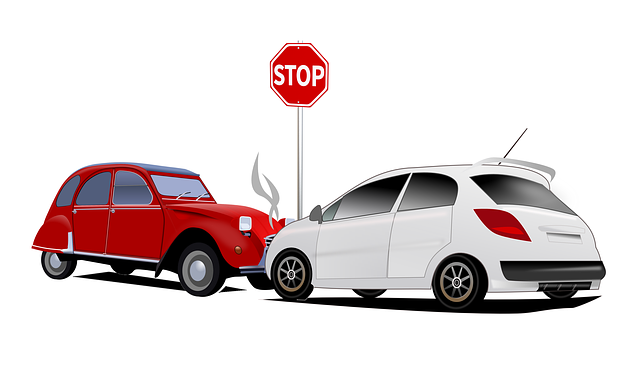Mercedes Commercial Vehicle Repair: Ensuring Safety Compliance and Benefits
Mercedes commercial vehicle repair goes beyond basic mechanics to maintain brand safety standards cr…….
In the dynamic world of automotive engineering, the reputation of a brand often precedes its products. Mercedes-Benz, synonymous with luxury and innovation, has carved a niche for itself in both passenger vehicles and commercial fleets. This article delves into the specialized realm of Mercedes commercial vehicle repair, exploring its intricacies, global impact, and evolving landscape. As fleet management becomes increasingly sophisticated and environmental standards rise, understanding the nuances of this sector is crucial for businesses, technicians, and policymakers alike.
Definition: Mercedes commercial vehicle repair refers to the specialized maintenance, servicing, and rebuilding of commercial vehicles produced by Mercedes-Benz. This encompasses a wide range of applications, from light delivery vans to heavy-duty trucks used in logistics, construction, and public services. It involves both routine maintenance and complex repairs, ensuring these versatile vehicles operate at peak efficiency while adhering to stringent safety and environmental standards.
Core Components:
Mechanical Repairs: This includes engine diagnostics, brake system maintenance, steering and suspension repairs, transmission servicing, and general mechanical inspections. The precision required for Mercedes vehicles demands advanced tools and a deep understanding of the intricate engineering involved.
Electrical Systems: Commercial vehicles are increasingly equipped with sophisticated electrical systems, including advanced driver-assistance systems (ADAS), electric motors, and complex lighting setups. Repairing and updating these systems is crucial for vehicle safety and performance.
Bodywork and Paint: Damage to commercial vehicles, whether from accidents or normal wear and tear, requires skilled bodywork technicians. The restoration process involves panel beating, welding, and precision painting to match the vehicle’s original factory finish.
Specialized Equipment: Mercedes-Benz commercial vehicles are designed for specific industries, necessitating specialized tools and knowledge. For instance, repairing a construction vehicle may require understanding heavy-duty hydraulic systems, while a delivery van repair might focus on optimizing fuel efficiency and cargo space.
Historical Context:
The roots of Mercedes commercial vehicle repair can be traced back to the early 20th century when Mercedes-Benz started producing vehicles for both personal use and commercial applications. As the company’s reputation grew, so did its commitment to quality and innovation in fleet management. Over time, specialized repair centers emerged worldwide, catering to the diverse needs of Mercedes-Benz commercial vehicle owners.
Mercedes commercial vehicle repair has a significant global footprint, with Mercedes-Benz having a strong presence in over 190 countries. This international reach presents both opportunities and challenges:
| Region | Market Dynamics | Unique Considerations |
|---|---|---|
| Europe | High demand for advanced safety features and emission compliance. Strict EU regulations drive innovation in fleet management practices. | Focus on electric vehicle (EV) conversion due to aggressive environmental targets. |
| North America | Growing emphasis on fuel efficiency and alternative fuels. Increasing adoption of telematics for fleet optimization. | Strict labor laws and varying state-level regulations require adaptable repair strategies. |
| Asia Pacific | Rapid urbanization drives demand for efficient delivery services. Growing focus on autonomous vehicles for commercial use. | Cultural variations in vehicle ownership and usage impact service preferences and practices. |
| Middle East & Africa | High volume of heavy-duty trucks due to construction and logistics industries. Increasing adoption of smart city initiatives. | Extreme weather conditions necessitate specialized repairs for heat and cold tolerance. |
The Mercedes commercial vehicle repair sector contributes significantly to global economic systems, with several key market dynamics:
Market Size: According to a 2022 report by ResearchAndMarkets, the global commercial vehicle repair market is projected to grow at a CAGR of 7.5% from 2022 to 2030, reaching USD 186.4 billion. Mercedes-Benz’s market share within this segment is substantial, reflecting its strong position in the premium commercial vehicle market.
Investment Patterns: The sector attracts significant investment in technology, training, and infrastructure. Mercedes-Benz invests heavily in research and development to stay ahead of industry trends and regulatory changes. Independent repair shops also invest in advanced tools and equipment to offer specialized services.
Economic Impact: Commercial vehicle repairs support numerous industries, including transportation, logistics, and construction. The maintenance and updating of these vehicles contribute to operational efficiency, ensuring businesses can meet demand without compromising safety or environmental sustainability.
Technology plays a pivotal role in shaping the future of Mercedes commercial vehicle repair:
Digitalization: The rise of digital technologies, such as telematics, Internet of Things (IoT), and cloud computing, is transforming fleet management. These tools enable real-time monitoring of vehicle performance, predictive maintenance, and remote diagnostics, streamlining repair processes.
Artificial Intelligence (AI): AI algorithms can analyze vast amounts of data to predict potential issues before they become critical. This enhances safety and reduces downtime. Additionally, AI-powered robotic systems are being explored for precise welding, painting, and assembly tasks in repair shops.
Advanced Materials: Lightweight composites and advanced steel alloys are revolutionizing vehicle construction, improving fuel efficiency and handling. Repair technicians need to be adept at working with these materials to ensure structural integrity and original equipment quality.
Autonomous Vehicles: While still in the development phase, autonomous commercial vehicles promise significant changes to repair practices. These vehicles may require specialized diagnostics and repairs that cater to their unique operational needs.
The Mercedes commercial vehicle repair industry operates within a stringent regulatory environment, ensuring safety, environmental protection, and fair business practices:
Emission Standards: Mercedes-Benz and its competitors must adhere to strict emission regulations worldwide, including Euro 6/7 standards in Europe and similar norms in other regions. Repair shops are responsible for ensuring that modified vehicles comply with these standards.
Safety Regulations: Government bodies like the National Highway Traffic Safety Administration (NHTSA) and European Union Agency for Railways and Road Safety set guidelines for vehicle safety. Repairs, especially after accidents, must adhere to these standards to preserve the vehicle’s structural integrity and passenger safety.
Workplace Safety: Repair shops are subject to occupational health and safety regulations, ensuring a safe working environment for technicians and employees. This includes proper training, protective gear, and adherence to best practices.
Data Privacy: With the rise of digital technologies, data privacy and cybersecurity become critical. Repair shops must handle vehicle diagnostics and customer data securely, adhering to regulations like GDPR in Europe and similar standards globally.
Despite its advancements, the Mercedes commercial vehicle repair sector faces several challenges:
Skilled Workforce Shortage: The industry struggles with a shortage of skilled technicians capable of handling complex repairs and advanced technologies. Addressing this gap through training programs and attracting talented individuals is essential for future growth.
Rapid Technological Change: Keeping up with rapid technological advancements can be challenging, particularly for smaller repair shops. Ongoing investment in training and equipment is necessary to stay relevant and provide the latest services.
Environmental Concerns: The industry faces criticism for its environmental impact, especially regarding emissions from older vehicles and the disposal of end-of-life vehicles. Promoting eco-friendly practices and recycling initiatives can help mitigate these concerns.
Proposed Solutions:
Collaborative Training Programs: Industry stakeholders, including Mercedes-Benz, repair associations, and educational institutions, should collaborate to develop comprehensive training programs addressing skill gaps.
Technological Adoption: Encouraging the adoption of advanced technologies like AI and digital tools can streamline processes, improve efficiency, and enhance safety standards.
Sustainable Practices: Promoting eco-friendly vehicle maintenance, repair, and disposal methods can reduce the industry’s environmental footprint.
A leading logistics company in Germany implemented a digital fleet management system integrated with Mercedes-Benz vehicles. This initiative included real-time tracking, predictive analytics for maintenance, and advanced driver assistance systems (ADAS). As a result, the company achieved:
A Dutch public transportation authority converted a fleet of Mercedes-Benz buses to electric power, aiming to reduce carbon emissions. The project involved modifying the vehicles’ electrical systems and infrastructure for charging stations. Outcomes included:
A network of independent repair shops in the US adopted a cloud-based diagnostic and repair system for Mercedes-Benz vehicles. This digital platform enabled:
The Mercedes commercial vehicle repair sector is poised for significant growth and transformation:
Electric Vehicle (EV) Dominance: The shift towards electrification will accelerate, with Mercedes-Benz leading the way in EV technology for commercial vehicles. Repair shops will need to adapt their skills and tools to cater to this growing segment.
Autonomous Vehicles: While still emerging, autonomous commercial vehicles will impact repair practices, requiring specialized diagnostics and maintenance procedures.
Digital Integration: Digitalization will permeate every aspect of the sector, from remote diagnostics to predictive maintenance. AI and IoT will play pivotal roles in optimizing fleet performance and reducing costs.
Sustainability Focus: Environmental considerations will drive innovation, with a focus on eco-friendly materials, recycling programs, and sustainable repair practices.
Mercedes commercial vehicle repair is a dynamic and critical sector within the automotive industry, influencing global logistics, transportation, and sustainability efforts. As technology advances and environmental standards evolve, this field must adapt to meet emerging challenges and opportunities. By embracing innovation, investing in training, and prioritizing sustainability, Mercedes commercial vehicle repair can continue to play a pivotal role in shaping the future of mobility.
Q: How do I know if my Mercedes-Benz commercial vehicle needs professional repair?
A: Look out for warning lights on your dashboard, unusual noises, reduced fuel efficiency, or handling issues. Regular maintenance checks by certified technicians can help prevent major problems.
Q: Are there specialized tools required for Mercedes commercial vehicle repairs?
A: Yes, many modern Mercedes-Benz vehicles have advanced electrical systems and diagnostic requirements. Specialized tools, such as advanced scanners and testing equipment, are necessary for accurate repairs.
Q: Can I convert my Mercedes van to electric power?
A: Absolutely! Electric vehicle (EV) conversion kits are available for various Mercedes commercial vehicle models. However, it requires professional installation due to the complexity of electrical systems.
Q: How can I find a reputable repair shop for my fleet of Mercedes-Benz vehicles?
A: Look for certified repair centers with experience in commercial vehicles. Online reviews, recommendations from industry peers, and checking with Mercedes-Benz dealers can help identify reliable shops.
Q: What are the environmental considerations in Mercedes commercial vehicle repairs?
A: The focus is on minimizing waste, using eco-friendly materials, and promoting recycling practices. Additionally, keeping vehicles well-maintained reduces emissions and improves overall sustainability.

Mercedes commercial vehicle repair goes beyond basic mechanics to maintain brand safety standards cr…….

Mercedes commercial vehicle repair utilizes high-tensile steel for enhanced durability and safety. T…….

Mercedes commercial vehicles are renowned for their durability and performance, heavily reliant on p…….

Maintaining Mercedes commercial vehicles in top condition is vital for delivery, utility, and fleet…….

Mercedes commercial vehicle repair demands specialized care due to intricate systems, requiring deep…….